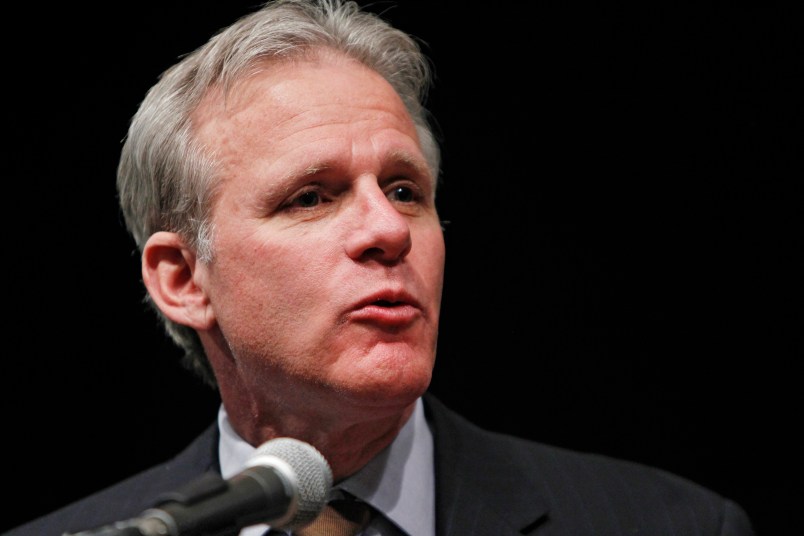A few days ago I mentioned this surprising turn of events with the about-to-be-released memoir of former Israeli Ambassador Michael Oren. Now there’s some more information. And Good Lord it does not put Oren in a good light. Not at all.
It’s a sharp piece of reporting by Larry Cohler-Esses in The Forward. The gist is this. The New York Times comes in for a lot of criticism from Oren as the example of par excellence of “Jewish-edited”/owned publications that are nonetheless reflexively hostile to Israel. That part in itself is not terribly surprising. The Times is an endless lightning rod for being either too friendly or too hostile to Israel. But Oren tells an almost unbelievable account of an exchange with Times Oped page editor Andrew Rosenthal, which is not very flattering to Rosenthal, to put it mildly. In the anecdote, Rosenthal is complacently indifferent to factual errors, has little concern for the difference between facts and opinion and acts in bad faith when Oren attempts to rebut falsehoods on his country’s behalf.
But Cohler-Esses talked to Rosenthal and the story just seems made up – something between complete fabrication and extreme embellishment.
Now, what Cohler-Esses got was Rosenthal’s version of events. (Oren seems not to have responded.) Perhaps they remember it differently. Or maybe Rosenthal is the one playing fast and loose with what happened. But the real kicker in the story is Oren’s characterization of what was said in a Times oped by Palestinian Authority President Mahmoud Abbas. It’s this oped that is the center of the story.
If you read the published oped it simply does not say what Oren says it said. And with that, the whole story falls apart.
I don’t think Rosenthal was making the other stuff up. But obviously I have no idea what went on between these two guys. So I have no way of knowing who’s portraying the interaction more accurately or honestly. This is why the OpEd is so key. It’s a public, published piece of writing. It says what it says. And it does not say what Oren says it does. If that’s wrong – and it is – most of his story falls apart and the rest loses all credibility.
Again, this doesn’t rest on Rosenthal’s say-so. It’s a published article. Read it. Oren is just wrong. I don’t want to steal Cohler-Esses. And in any case to get all the ins and outs of what I’m describing you need to read his piece. So do read it.
As for Oren, I still don’t know quite what to make of all this. You know I love skewering clowns. But Oren is no clown. Or as I told a player in this drama a couple days ago by email, if he is a clown I didn’t realize it until now. I really don’t know what was going on with him in this book. Barak Ravid captures the essence of it in this article “How Michael Oren Sold Out U.S.-Israel Ties to Sell a Few More Books.”
And on top of all that, a lot of it seems made up.






